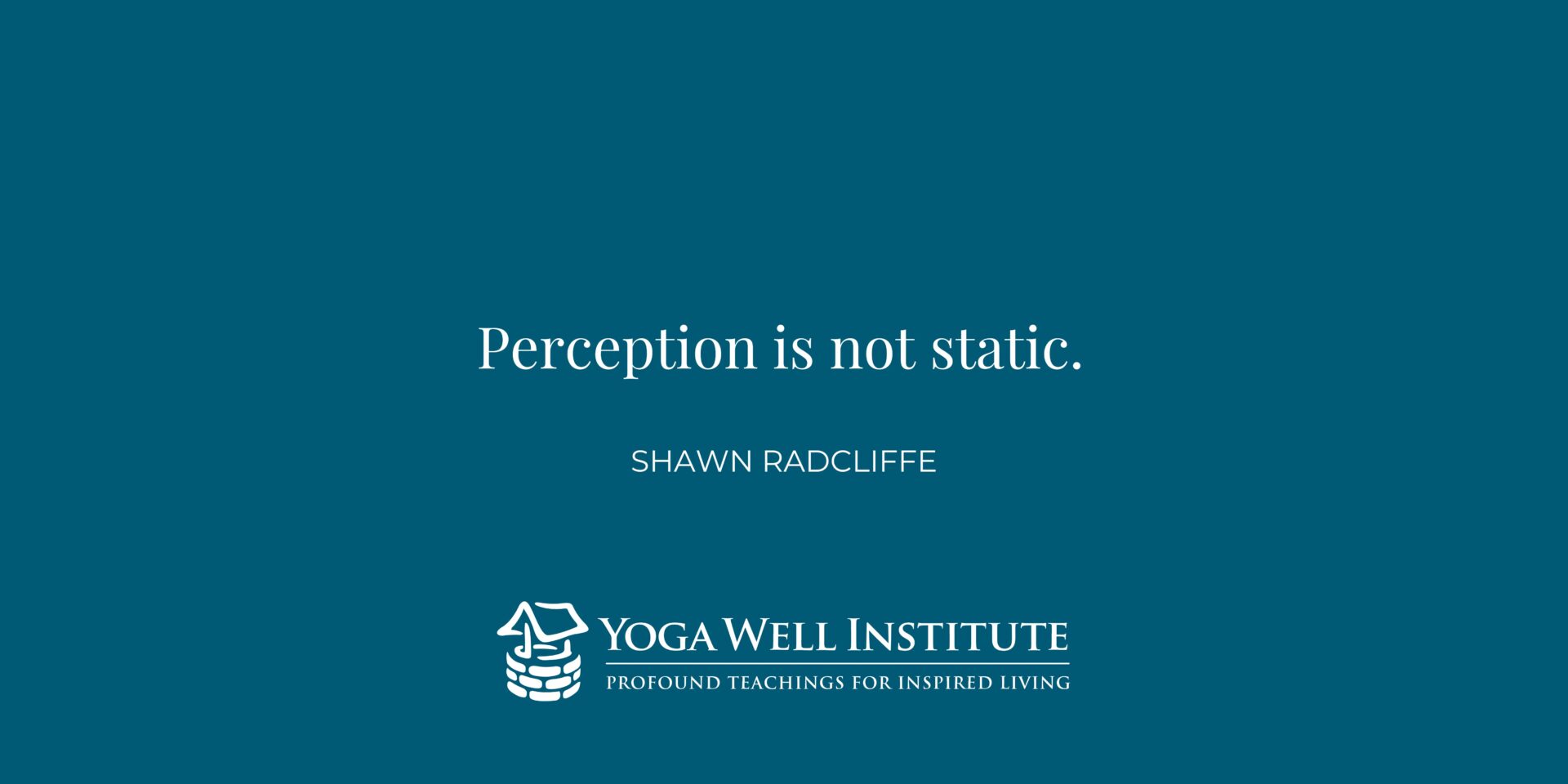Experiences come in many forms — the laughter of a child, the discomfort of a bed in a hotel room far from home, another car cutting in front of us while driving to work.
While it can be tempting to describe these experiences as inherently positive or negative, the reality is a bit more complicated. A child laughing can be a source of pure joy for a parent … until that laughter interrupts the parent during an online meeting. And who would find pleasure in a lumpy bed? Maybe a young couple in love on their first trip away together.
The reason that events can produce such drastically different experiences has to do with how we perceive those events.
Think about the experiences in your life. Each has two components — an external event, and your perception of the external event.
The external events are the same no matter who is observing them. Perception, on the other hand, is always unique for each person. Imagine two people standing side-by-side in a field looking up at a cloudy sky; each one will have a different experience.
Likewise, how you perceive an event on one day can be drastically different from how you perceive a similar event on another day. As a result, you will have different experiences. For example, compare how you might react to someone cutting you off in traffic when you are late for work versus to when you’re coming home from a magical first date.
Perception is not static.
It is shaped by the state of your system — your mind, body, and emotions — as well as by your past experiences, and your memory of those experiences. These can all color the “lens” through which you view the world.
The state of your system can affect your experiences in other ways. When you are out of balance, there is no stability of attention — your lens doesn’t stay fixed on one place for very long, which prevents you from seeing clearly what is happening around you.
But if you can maintain a state of equanimity, or balance, your mind will be more easily directed. That means your lens will be more stable — you will be able to keep it fixed in a direction of your choosing. As a result, your perception of the world will be more stable.
Yoga shows us how to develop this kind of stable attention.
Part of this comes from intentionally directing the mind, which reinforces the pattern of sustained focus. Yoga changes the state of our system, which changes our perspective and makes it easier for us to maintain stable attention.
When you have stability of attention, you are more present with what is happening around you. This allows you to notice when you are projecting patterns onto a situation that are not actually related to that situation, which leads to clearer, more accurate perceptions.
So when you are in balance, and you look up at the sky — whether it is cloudy or blue — you will see the sky for what is really there.
Ready to explore more?
To hear more fresh perspectives on what Yoga is, how it transforms the body and mind, and liberates your life tune into the Yoga Well Podcast! Within the Yoga Well Podcast we will share teachings from the Viniyoga lineage of Mr. TKV Desikachar, while exploring Yoga as a way of being that is practiced both on the mat and in our everyday life.
Find us on Spotify, Apple Podcasts, Google, Amazon and the Yoga Well Insitute!


Shawn Radcliffe
Shawn Radcliffe is a writer and yoga teacher in Ontario, Canada. His writing has appeared in print and digital publications such as Healthline, Science & Nonduality, Men’s Health, and others. He began his yoga teacher training in Portland, Oregon, including viniyoga and other styles. When he’s not at the computer or on a yoga mat, Shawn is often backpacking, bicycling, or wandering the streets of a new city. Connect with him on his website or Twitter.
